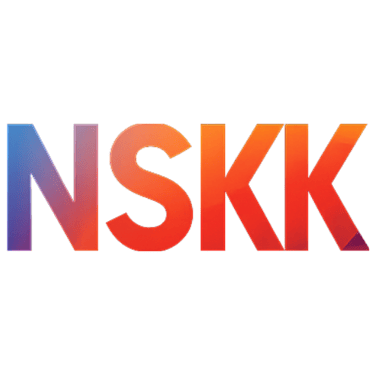Why Economics Matters: The Science of Everyday Choices | Ahnaf Al Nasif
Economics is the study of choices in a world of scarcity, where every decision has trade-offs and opportunity costs. By using models and analyzing incentives, it helps us make smarter personal, social, and global decisions. Ultimately, economics gives us the tools to think critically and use limited resources for a better life.
ECONOMICS
Ahnaf Al Nasif
9/11/20255 min read
We make choices every single day, from the moment we hit the snooze button to the late-night decision to scroll for just five more minutes. What to eat for breakfast, whether to drive or take the bus, how to spend a paycheck, or what to study in school—our lives are a continuous stream of decisions. But have you ever stopped to consider the framework behind these choices? This is where economics, far from being a dry academic subject confined to textbooks and stock market charts, reveals itself as the essential study of human life. It is the science of decision-making in a world of constraints and understanding it is not just for policymakers and investors; it is a crucial tool for navigating the complexities of the modern world.
At its heart, economics is born from a universal and inescapable truth: scarcity. This isn’t just a shortage of money or resources; it’s a fundamental feature of existence. We all live with limited resources—time, money, energy, attention—while simultaneously facing unlimited wants and needs. You might want a new phone, a vacation, more time with your family, a better education, and a cleaner environment, all at once. But your income, the hours in your day, and society’s resources are finite. You cannot have it all. This tension between the limited and the unlimited is the engine of economics.
Because of scarcity, we are forced to choose. And if we must choose, we naturally want to choose well. This leads us to the core concept of trade-offs. Every choice we make comes with a cost, not necessarily in dollars, but in the next best alternative we give up. Economists call this an opportunity cost. It is the real price of any decision. For instance, if you choose to spend an hour watching a movie, the opportunity cost isn’t just the price of the streaming subscription—it’s the hour you could have spent studying, working out, or connecting with a friend. If a government chooses to allocate a billion dollars to build a new highway, the opportunity cost is the new hospitals or schools that money won’t be building. Recognizing opportunity cost forces us to think critically about the true value of our actions, pushing us to use our scarce resources as efficiently as possible to achieve the greatest benefit.
This process of weighing options is a constant negotiation between what we gain and what we sacrifice. Economists often frame this as “guns versus butter,” a classic metaphor for the trade-off a nation faces between spending on military defense (guns) and consumer goods (butter). But we see it everywhere: saving for the future versus enjoying today (savings vs. consumption), studying for an exam versus going to a party (long-term gain vs. short-term pleasure), protecting the environment versus promoting industrial growth (sustainability vs. development). Economics provides the language and the logical framework to analyze these trade-offs systematically, moving us from gut reactions to informed decisions.
To navigate this world of trade-offs, we rely on models. An economic model is a simplified representation of reality, much like a map. A map doesn’t show every single tree, pothole, or blade of grass; that would be overwhelming and useless. Instead, it highlights the essential features—roads, landmarks, distances—to help us navigate. Similarly, an economic model strips away the overwhelming complexity of the real world to isolate and study the relationship between key variables, such as how the price of gasoline affects how much people drive, or how interest rates influence business investment.
It’s a common mistake to dismiss a model as “unrealistic” because it doesn’t capture every detail. Of course it doesn’t; that’s its greatest strength. The goal is not to replicate reality but to clarify it, to make it understandable so we can generate insights and predictions. By using models, we can create a logical framework for understanding cause and effect, which helps both individuals and societies anticipate the potential consequences of their choices before they are made.
So why is this discipline so important? Its necessity permeates every layer of society.
First, for individuals and families, economics is practical life wisdom. It’s the foundation of personal finance. Understanding concepts like budgeting, interest, inflation, and risk allows people to make smarter choices with their money, avoid debilitating debt, and plan for a secure future. It cultivates a mindset of critical thinking. When you understand incentives—how benefits and costs influence behavior—you can better navigate the world. You can decipher why a “buy one, get one free” offer might not be the deal it seems, or how your future self’s incentive to be fit is often sabotaged by your present self’s desire for comfort. Economics teaches us to think at the margin—should I work one more hour? Eat one more slice of pizza?—evaluating the additional benefit against the additional cost of a small change in behavior. This marginal analysis is a powerful tool for optimizing daily life.
On a societal level, economics is the indispensable guide for public policy. Every law, regulation, or government program allocates scarce resources and creates incentives. Should we raise the minimum wage? Economics provides frameworks to analyze the trade-off between higher incomes for some and potential job losses for others. How do we tackle climate change? Economists design systems like carbon pricing, which use market incentives to steer businesses and consumers toward greener choices without resorting to unmanageable bans. Questions about healthcare, education, infrastructure, and taxation are all, at their core, economic questions about how to best use limited public funds to achieve the greatest societal well-being. Without economic analysis, policy is just a guess, often leading to wasteful spending and unintended negative consequences.
Furthermore, economics helps us understand the vast and interconnected global world we live in. Why does your local store sell avocados from Mexico, coffee from Brazil, and electronics from China? The theory of comparative advantage explains how specialization and trade make everyone better off, raising living standards across the globe. It helps us understand the complex causes of financial crises, the debates over globalization, and the economic underpinnings of international relations. In an increasingly interconnected world, economic literacy is citizenship literacy. It allows us to engage with major global issues beyond partisan soundbites, based on an understanding of underlying principles.
Finally, studying economics equips us with a valuable set of skills. It isn’t just about memorizing graphs and formulas. It’s a discipline that hones your ability to:
Think Analytically: Break down complex problems into manageable parts.
Interpret Data: Evaluate evidence and separate correlation from causation.
Weigh Trade-offs: See issues from multiple perspectives and understand that every policy has costs and benefits.
Make Logical Arguments: Construct and deconstruct points of view based on evidence and reason.
These skills are incredibly transferable and highly valued in virtually any career, from business and law to medicine and public service.
In conclusion, to ask “Why economics?” is to ask why we should try to understand the logic behind the choices that shape our existence. It is not a cold, impersonal science about money. It is a behavioral science, a study of people—how we strive to improve our lives amidst constraints. It provides the lenses of scarcity, trade-offs, opportunity cost, and incentives through which we can view our own decisions, our community’s challenges, and our world’s most pressing issues with greater clarity and wisdom. Economics is necessary because it is, ultimately, the organized study of how to use our limited means to achieve our unlimited ends. It is a guide to making a better life, not just in a material sense, but in making more thoughtful, informed, and ultimately more fulfilling choices for us and for society. In a world of daunting complexity, economics doesn’t give us all the answers, but it gives us the right tools to ask the right questions.


Na Shikhle Kemne Ki
Sher-E-Bangla Nagar, Dhaka
+880 1715 440454
contact@nskkbd.com
বাংলায় পড়ুন
